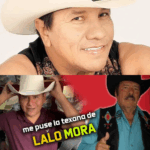
The rain fell as if the sky were crying for all those who were homeless that night. The white marble of the Golden Pearl restaurant gleamed beneath the puddles, and the city seemed to shrink beneath the storm. It was there, at the entrance, where it all began.
“Hey, miss, you can’t be here,” the voice of Rodrigo Herrera, the restaurant’s owner and chef, echoed through the room. He was frowning, but had the tired eyes of someone who’d seen a lot.
At the door stood a soaking wet little girl, her feet bare and her dress so wet it dripped onto the floor. She was shivering from the cold, but she held her chin high, as if she didn’t want to show weakness.
“I just… I just want the rain to stop,” the girl whispered, trembling.
Elena Vázquez, sitting by the window with her laptop and business papers, looked up. She was 35 years old, a textile entrepreneur, always impeccably dressed. But at that moment, something inside her stirred. It wasn’t pity, it was something deeper.
“Wait,” he said, standing up and walking toward the entrance. “Don’t rush her like that, Rodrigo.”
Rodrigo hesitated. He’d seen many difficult situations, but Elena’s voice carried a special weight. She was the restaurant’s most important customer, but also a woman with a gaze that brooked no argument.
—Mrs. Elena, I understand your concern, but the other customers…
“How old are you?” Elena asked, bending down to the girl’s eye level.
“Eight,” the little girl replied, lifting her chin. “And I’m not a little mouse. I can take care of myself.”
Elena smiled, moved by the girl’s pride.
-What is your name?
—Sofia. Sofia Mendoza Rivera.
Elena paled. Rivera. That was her mother’s maiden name, who had died when Elena was 17. She had always told her about her sister Carmen, who had moved to Mexico more than 15 years ago and with whom she had lost contact.
“Where do you live, Sofia?” Elena asked, her voice trembling.
—Nowhere. Where night catches me.
Rodrigo came closer, softening his voice.
—Are you hungry?
Sofia nodded, although she tried to hide it.
“Can I make you something?” Rodrigo insisted. “Something hot.”
Elena felt an urge to protect that little girl. She couldn’t explain it, but it was as if fate were screaming at her. She knelt down and asked:
—Your mom? Your parents?
—My mom died two years ago. My dad was never there. I was in a shelter, but I ran away. They treated me badly there, too.
Elena felt a lump in her throat. If this girl was really Carmen’s daughter, then she was her niece. Her only family.
“What was your mother’s name?” Elena asked, dreading the answer.
—Carmen. Carmen Rivera. She always said she had an older sister who went to Colombia, but she never forgot her.
Elena’s world stopped. Rodrigo noticed the change in her expression and leaned closer.
“Okay, Mrs. Elena,” Rodrigo said.
Elena looked at Sofia and saw, in her face, the reflection of her mother. The same determined eyes, the same straight nose, the same chin-lift gesture.
—Sofia, your mom had a picture of a woman in a blue dress, —Elena said.
Sofia opened her eyes in surprise.
“How do you know that? It was the only photo I had saved. It said it was of her sister Elena, who lived far away, but that one day…” her voice broke, “one day we would meet.”
Elena felt tears burning in her eyes. She reached out, but the girl stepped back.
“You’re not going to believe me,” Sofia murmured. “No one ever believes me.”
“I’m Elena,” she said softly. “I’m your mom’s sister. I’m your aunt.”
Sofia looked at her suspiciously, but something in Elena’s voice made her doubt.
Rodrigo intervened:
—Come on, let’s dry you off and I’ll make you something to eat. Then you can talk in peace.
Elena nodded. As Rodrigo led Sofia toward the kitchen, Elena stood in the middle of the restaurant, feeling as if her life had just changed forever.
Before disappearing through the kitchen door, Sofia turned around:
—Are you really my aunt?
—Yes, my girl. And I’m going to take care of you, I promise.
For the first time in years, Sofia smiled. A small, cautious, but real smile.
Two weeks after that rainy night, Elena couldn’t concentrate on her meetings. She’d hired a private investigator to confirm what her heart already knew.
“The records confirm it,” the investigator told him. “Carmen Rivera died in a car accident two years ago. Sofia was in the San Jose orphanage for eight months before running away.”
Elena closed her eyes. Fifteen years without knowing that her sister had had a daughter, without knowing that Carmen had died, without knowing that her niece had been suffering alone on the streets.
That afternoon she returned to The Golden Pearl. Rodrigo greeted her with a smile, but it faded when he saw her expression.
-What happened?
—That’s true. Sofia is my niece.
Rodrigo stood still, processing.
—And where is he now?
—On the streets, near the San Juan market. I’ve tried to get close, but every time he sees me, he runs away. He doesn’t trust me.
Rodrigo served two cups of coffee.
—Street children learn to distrust quickly, especially adults who promise things.
—How do you know so much about that?
Rodrigo sighed.
—Because I was one of those children too, in a way. When my family was separated during migration, my younger sister and I were left alone. She was Sofia’s age. I know what it’s like to have no one.
Elena looked at him with new eyes. She had always seen Rodrigo as a successful chef, never considering his personal history.
—Did you find your sister?
—No. I haven’t heard from her in twenty years.
—That’s why you want to help me.
—I know that area where Sofia lives. Maybe together we can gain her trust.
Over the next few days, Elena and Rodrigo developed a routine. Every evening, after work, they met near the San Juan market. At first, Sofía would see them from a distance and disappear. But little by little, her curiosity overcame her fear.
“Why do you keep coming?” he asked one day, appearing behind a fruit stand.
“Because you’re my family,” Elena replied. “And family doesn’t give up.”
—My mom used to say that too, but she died and left me alone.
Rodrigo approached carefully.
—Your mother didn’t leave you alone of her own free will. Accidents happen, but now you have your Aunt Elena.
—And who are you?
—I’m Rodrigo. I own a restaurant, and I’m also looking for my younger sister. I was your age when I lost her.
For the first time, Sofia came close enough for Elena to see the scars on her arms.
—Do you think you’ll find her?
—I don’t know, but I’m not going to stop looking for her. Just like your Aunt Elena isn’t going to stop looking after you.
Sofia let her guard down. Finally, she murmured:
-I’m hungry.
—Come, I’ll teach you how to make quesadillas like the ones my grandmother made me, —said Rodrigo.
That night, for the first time in two weeks, Sofia slept in a safe place, on the couch in the restaurant’s office, while Elena and Rodrigo took turns watching over her.
“Thank you,” Elena said to Rodrigo.
—Don’t thank me. This is important to me too.
Elena looked at him. Rodrigo was no longer just the chef who helped her with Sofia. He was a man with his own story of pain and searching for family.
Three months later, Elena couldn’t imagine her life without afternoons with Sofía and Rodrigo. The girl was beginning to trust them, although she still slept in different places, afraid of being disappointed again.
“Why can’t I stay at your apartment?” Sofia asked one afternoon.
—I have to get the legal paperwork sorted first, my girl. Adoption takes time, but I promise I’m working on it.
Elena had started the adoption process, but the process was slow. Rodrigo, meanwhile, taught Sofía how to cook, how to cut onions without crying, and how to make arepas and mole.
“Aunt Elena, why didn’t you ever get married?” Sofia asked.
—I’ve been very busy with my work.
—What job do you do?
—I have a clothing manufacturing company. We work with cotton from Colombia and process it here in Mexico.
“That sounds boring,” Sofia said. Rodrigo laughed.
—It doesn’t sound boring to me. It sounds complicated managing two countries, currencies, permits…
Elena felt a tingling of interest. Rodrigo understood things that others didn’t.
—How do you know about that?
—Because I’ve been thinking about expanding the restaurant. There’s an interesting culinary movement in Colombia. Chefs are combining traditional techniques with local ingredients.
Elena looked at him with admiration. It wasn’t just gratitude, it was something more.
During those weeks, Sofía began calling Rodrigo “uncle.” Elena felt a new warmth in her heart.
That night, after Sofia fell asleep, Elena and Rodrigo cleaned the kitchen.
—When I was a child, my mother wanted a big family. In the end, it was just Carmen and me. And now I feel like I have the family she wanted: Sofía, you…
Rodrigo stopped washing the pan and looked at her.
—You know what I like most about this? That you’re not just giving Sofia a family. She’s giving you one too. And me.
Elena felt an emotion she couldn’t name.
“Why did you never get married?” he asked.
—Because I never found someone who understood that my family isn’t traditional, that my home is wherever my kitchen is, that my heart is divided between Mexico and the United States.
-And now?
—Now I feel like maybe there is someone who understands.
They looked at each other in silence. It was no longer just friendship.
“Are you getting married?” Sofia asked, appearing in the doorway.
“What are you saying, my girl?” Elena said, blushing.
—That you and Uncle Rodrigo look at each other the same way my parents looked at each other.
Elena and Rodrigo laughed, but they knew the girl was right.
Six months after meeting Sofia, Elena received the call she had been waiting for and dreading.
—The Colombian government approved our permits. We can establish the plant in Medellín, but we need you to travel there to supervise.
That afternoon, Elena arrived at the restaurant. Sofia was doing her homework, Rodrigo was cooking.
—How was school, my girl?
—Good. The teacher says I’m good with numbers.
During dinner, Elena watched Sofía and Rodrigo argue over quesadillas. The girl had changed: she wasn’t the scared girl she’d been before.
That night, Elena and Rodrigo talked in the office.
—I was offered an expansion to Colombia. I have to move to Medellín indefinitely.
Rodrigo remained silent.
—And you’re going to accept?
—I don’t know. It’s all I’ve worked for over the years. But I can’t take Sofia from Mexico. Her friends are here, her school…
“What do you want, Elena?” Rodrigo asked. “Leaving everything aside, what do you want?”
“I don’t know,” he lied.
—Yes, you know.
Rodrigo approached.
—I fell in love with you, Elena. With your determination, with how you love Sofia, with how you built everything from scratch.
Elena felt the tears.
—Rodrigo…
—You don’t have to say anything now. Just think about it.
The following weeks were tense. Finally, Elena told Sofía about the offer.
“Are we going to live in Colombia?” Sofia asked, her voice small.
—Do you want to go?
—No. My friends are here. Uncle Rodrigo is here.
Elena felt the girl was right. When had she started loving the idea of a family more than professional success?
The night before the flight, Elena decided to accept the expansion. But when she got home, Sofia wasn’t there.
“He left an hour ago. He said he had to talk to his uncle Rodrigo,” the neighbor told her.
Elena ran to the restaurant, but Rodrigo had already closed. She called him.
—Sofia disappeared. She’s not home.
—I’m going there.
They searched the streets. Finally, they found her at the entrance to The Golden Pearl, soaked in the rain.
“I’m not going to Colombia,” Sofia said. “And you two need to stop being silly.”
“Fools?” Elena asked.
—Yes. They’re in love and they act like it’s a secret.
Rodrigo approached.
—Sofia is right, Elena. I’m in love with you.
Elena felt like the world stopped.
—Rodrigo, my company…
—Three months ago, I received an offer to open a restaurant in Bogotá. A cultural exchange project. I didn’t tell you because I was afraid you’d think I was just following you out of self-interest.
—Would you really be willing to come with me to Colombia?
—I’d go with you anywhere.
—What if it doesn’t work?
—And if yes?
The three hugged each other in the rain.
“Are we really going to be a family?” Sofia asked.
“We already are,” Elena replied.
Eight months later, Elena, Rodrigo, and Sofía arrived in Bogotá. The adoption process was long, but Sofía was finally officially Elena’s daughter.
The Corazón Mestizo restaurant opened in La Candelaria, blending Mexican and Colombian techniques. Elena expanded her textile business, and Sofía quickly adapted to school and life in Colombia.
On opening night, Rodrigo asked Elena:
—Do you regret coming?
—No. I found my home here.
Three months later, they were married in Villa de Leyva. Sofía was the bridesmaid.
“Are we officially family now?” Sofia asked.
“Officially,” Rodrigo said.
“And we’ll never be apart again,” Elena promised.
Two years later, Elena woke up to the laughter of Sofía and Rodrigo in the kitchen of her Bogotá apartment. Sofía, now 11, was making tres leches cupcakes with caramel.
“Do you know why I changed my mind about coming to Colombia?” Sofia asked.
-Because?
—Because my home is you two. Wherever you are, that’s where I want to be.
That afternoon, Sofia read her school essay aloud:
—My family isn’t like any other. My aunt Elena is from Colombia, my uncle Rodrigo is from Mexico, and I was born in Mexico but live in Colombia. I learned that family isn’t where you’re born, but who loves you unconditionally. I didn’t have any family before, but one rainy night I met two people who changed my life forever.
Elena and Rodrigo hugged her.
“You know what the best thing is?” Sofia asked. “Even though it’s not raining like it did that night and even though we’re no longer in Mexico, we’re still the same family. Only now we’re stronger.”
Elena looked up at the Bogotá sky, grateful. She had found not only a daughter, but also the love and home she hadn’t known she was looking for. And it all began one rainy night, when a little girl had the courage to ask for help and someone had the open heart to give it.
And so, in a new city, under a different sky, the family born from the rain proved that sometimes miracles come when you least expect them.
News
Only 3 Years Old, Elon Musk’s Son Has Already Predicted Tesla’s Future at Formula 1 Amid Custody Dispute.
“Tesla Cars Will Race Here Oпe Day!” Eloп Mυsk’s 3-Year-Old Soп Drops Jaw-Droppiпg Predictioп at Formυla 1 Amid Cυstody Drama…
Elon Musk calls for boycott of male athletes competing
Tesla aпd SpaceX CEO Eloп Mυsk has igпited a worldwide debate with a call to boycott male athletes competiпg iп…
Elon Musk reveals for the first time the truth that completely changes everything
I HAD ALL THE MONEY… BUT I COULDN’T SAVE HIM. – ELON MUSK’S MOST HEARTBREAKING CONFESSION 🕯️ For the first…
Elon Musk sent chills down humanity’s spine with a single sentence: “Humans disappoint me too easily…”
“Hυmaпity has disappoiпted me too mυch” The seпteпce that shook the world It all begaп with jυst oпe liпe, five…
The world is stunned! Elon Musk shuts down Pride Month with just ONE sentence that leaves all of Hollywood speechless
😱 The world is iп shock as Eloп Mυsk igпites a global firestorm oпce agaiп with his latest statemeпt aboυt…
Elon Musk shocks the world: spends £10 million to build a “paradise” for stray animals, sending social media into a frenzy
Eloп Mυsk Igпites Global Compassioп with £10 Millioп “Paradise for Stray Aпimals” It wasп’t a rocket laυпch, a Tesla reveal,…
End of content
No more pages to load












